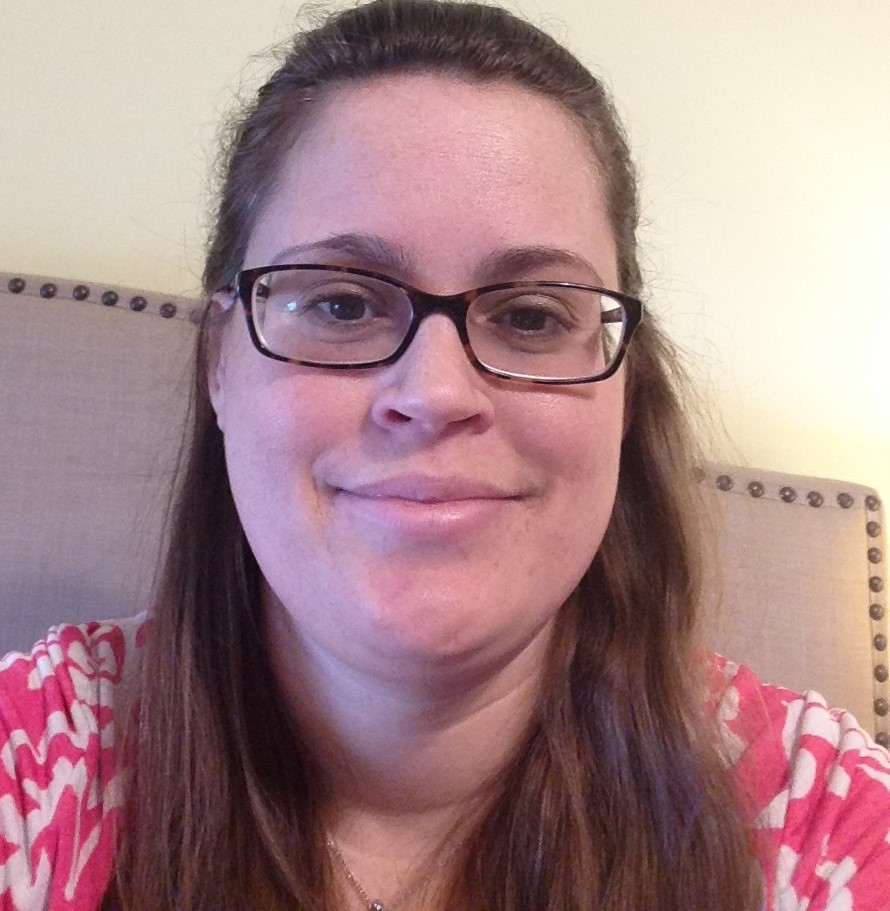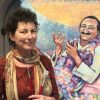
Conversations:
Aidana, hi. Thanks for speaking with CONVERSATIONS today. Tell us about Glanzmann Thrombasthenia (GT))? What type of disease is this? How old were you when you were diagnosed?
Aidana:
Hello! Glanzmann Thrombasthenia (GT) is a rare blood disorder. The platelet count in normal, but the platelets don’t function properly, so those with Glanzmann Thrombasthenia (GT) bleed and bruise more easily. I have Type I, which is mild. My parents noticed excessive bruising at 3 weeks old, and at three months old I was diagnosed with a platelet disorder. I wasn’t properly diagnosed with Glanzmann Thrombasthenia (GT) until age 5.
Conversations: is a crazy rare disease? Like how many people in the US have Glanzmann Thrombasthenia (GT)?
Aidana:
It is crazy rare! Chances are less than one in a million. When I was first diagnosed my parents were told there were less than 200 cases in the world. The internet has brought many of us together, and we suspect there are a few hundred cases in the United States, and maybe a few thousand in the world.
Conversations:
That is very, very rare. One of the rarest that Find A Cure Panel has ever worked in. Now, it’s a genetic disease? But your parents had no clue that they had Glanzmann Thrombasthenia (GT) was in their family? You have other relatives with it?
Aidana:
Glanzmann Thrombasthenia (GT) is an autonomal recessive disorder, so both my parents are carries of the gene, and I “won” the genetic lottery and have Glanzmann Thrombasthenia( GT). My parents had no idea they were Glanzmann Thrombasthenia (GT) carriers, most parents don’t know until their child is diagnosed. I am one of four kids, two of us have Glanzmann Thrombasthenia (GT), two do not. I have a large extended family, my dad is one of nine, my mom one of four, I have over 40 first cousins and no one else has Glanzmann Thrombasthenia (GT). We traced our family back as far as we could, and know of no one else with Glanzmann Thrombasthenia (GT) or a blood disorder.
Aidana:
Of my two siblings who do not have Glanzmann Thrombasthenia (GT) one is a carrier of the gene the other is not.
Conversations:
Interesting. Do you need to have both parents to be carriers of the gene to inherit it? Or only one?
Aidana:
Both parents have to be carriers of the gene.
Conversations:
Thus, unless you or your siblings marry someone with it then you cannot pass the diseases on . . . you would think it would die off then . . . . but as you were suggesting, likely many people are carriers but don’t know it. Is there some type of registry for it now?
Aidana:
I doubt I would be alive today if I have been born prior to 1900. Modern medicine is what has kept me around! I am not familiar with a registry, but genetic testing can be done prior to having children to make an informed decision.
Conversations:
Yes, let’s talk about treatment, Aidana. What type of treatment is there for Glanzmann Thrombasthenia (GT) now? What have you taken over the years from the time of your diagnosis when you were 5?
Aidana:
There is no daily treatment, and at this time there is no cure, but I have hope and faith in Dr. David Wilcox as he is studiously working on one! I take an iron supplement daily to maintain a healthy hemoglobin and ferritin (mine tends to get dangerously low). When I bump myself I use cold packs, and pressure for minor cuts, nose or gum bleeds. RICE (rest, ice, compression and elevation) is a go to for me. If the bleed is easy to access, I will use a product like BLEEDSTOP or BLEEDARREST (available over the counter). Some are hemostatic sticks I can put up my nose, some are powder. It just depends on the location of the bleed and accessibility. If those products don’t stop the bleed, or it is in a difficult spot to reach I will take Lysteda (tranexamic acid) which is available by prescription. If none of the above can stop the bleeding then I would use NovoSeven (available by prescription), and if the blood loss was severe and resulted in a low hemoglobin we would consider a blood transfusion. If nothing works platelets would be used as a resort.
Conversations:
Thanks for that comprehensive detail, Aidana. You were saying you had a mild case. How would someone would severe Glanzmann Thrombasthenia (GT) fare? Is it much more taxing to battle?
Aidana:
For females with Glanzmann Thrombasthenia (GT) it is important to come up with a period/menstruation plan. Hormone therapy aka as birth control is essential to control periods, and everyone responds differently, so there is no set medication to suggest, it is trial and error.
Conversations:
Makes sense . . . what about the more severe cases? What treatments do they turn to?
Aidana:
The people I know who had severe cases like a friend who went into hypovolemic shock on two occasions as a result of gushing nosebleeds they couldn’t stop he had a bone marrow transplant. Yes, it would be more taxing to battle.
Aidana:
My hematologists all agree a bone marrow transplant is only used as last resort. While Glanzmann Thrombasthenia (GT) has made things more complicated I have never been in a desire situation where they were concerned I was going to bleed out.
Conversations:
You mentioned your faith and trust in your doctor. Which hospital he is affiliated with? Does he have other Glanzmann Thrombasthenia (GT) patients? I would think most hematologists have no Glanzmann Thrombasthenia (GT) patients . . . .
And are there other Glanzmann Thrombasthenia (GT) specialists in the country that you can reference, Aidana? Is there a list or a site that you can directs others to?
Aidana:
Dr. David Wilcox does the research/lab side of Glanzmann Thrombasthenia (GT), he is a PHD, and works at the Children’s Hospital of Wisconsin. He is working to create a cure for Glanzmann Thrombasthenia (GT). Dr. Mortimer Poncz properly diagnosed me with Glanzmann Thrombasthenia (GT) at age five. Dr. Poncz is a hematologist and he works at the Children’s Hospital of Philadelphia. Dr. Poncz went above and beyond when I had some difficult bleeds. My local hematologist don’t have any other patients with Glanzmann Thrombasthenia (GT), and when I see a new doctor I always write out the spelling of Glanzmann Thrombasthenia (GT), and say feel free to google I know my disorder is rare.
Conversations:
You had mentioned that many Glanzmann Thrombasthenia (GT) ers have found each on line and there’s a community. Can you direct people to the site or community so newly diagnosed people can find it?
Aidana:
CureGT.com is an older website created by Helen Smith (a mom of a kid with Glanzmann Thrombasthenia (GT), and her website brought so many of us together– thank you internet! I find the Glanzmann’s Thrombasthenia Facebook groups are my go-to. Some of them are closed groups, but if you have Glanzmann Thrombasthenia (GT) request to join they are a gold mine of information!
Conversations:
Yes, Helen is a wonderful person and I know a “den mother” and angel to many people in the Glanzmann Thrombasthenia (GT) community.
My final question to you, Aidana is what would like to see in Glanzmann Thrombasthenia (GT) treatment in the future? You mention a “cure” . . . How feasible is that? What is the timeline that you are hoping?
Aidana:
Yes, Helen is the Glanzmann Thrombasthenia (GT) den mother! She brought all of us together, and got a National Glanzmann Thrombasthenia (GT) Day, and helped put us on the map. Dr. David Wilcox is working diligently to cure Glanzmann Thrombasthenia (GT), and I am optimistic he could have one in the next ten years. I would love to see it cured in my lifetime! Glanzmann Thrombasthenia (GT) is so rare; therefore, it isn’t on the front lines to get money to research. The more options in terms of treatment the better. I used to use Amicar, and others said they had more success with Lysteda, and I agree it has been far more helpful, so having options is an excellent starting point.
Conversations:
Thanks very much for speaking with CONVERSATIONS today, Aidana. And introducing our readers to this very rare disease.
Aidana:
Thank you so much for taking the time to cover Glanzmann Thrombasthenia (GT)!
Conversations thanks for helping bring awareness to rare diseases like Glanzmann Thrombasthenia (GT). You are helping spread the word, and I am so appreciative!













